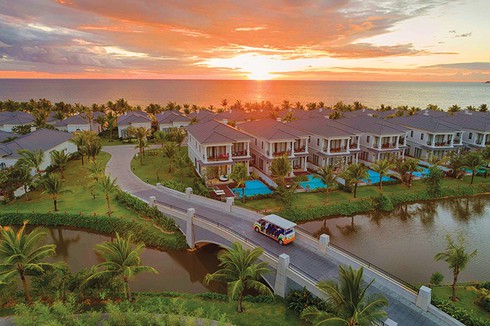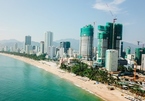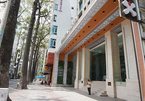 |
| A raft of major developers are resuming wide-ranging activities as the country gets back up to speed. Photo: Le Toan |
The Vietnamese tourism industry is attempting to push ahead with operations as demand from domestic tourists begins to increase exponentially.
The Ministry of Culture, Sports and Tourism has issued a “Stay At Home with Vietnam” programme to promote domestic tourism with many promotions and incentive packages by both the hospitality and airlines sectors.
It has been just over a month since business restrictions were lifted in the country, and since then there have been a raft of promotion packages available, combining accommodation, food and beverages, and airline tickets within Vietnam at discounts of around 30 to 50%. These could remain in place for another month at least.
After positive signs, the tourism industry is now actively preparing for the second phase of returning to normal when it begins to welcome international visitors from safe markets.
Second home kickstart
As tourists return and demand increases, second home and holiday developers can resume their sales activities as well.
Moreover, the industry has been galvanised with the introduction of many incentives and policies issued to encourage developers to invest in the market, including stimulus financial packages and the recent decision to expand deadlines for tax submissions.
Back in February, the Ministry of Natural Resource and the Environment issued a guideline to grant ownership for tourism properties including condotels and second home villas and officetels valid for 50 years and eligible to extend to 70 years.
These guidelines had already started to encourage developers, investors, and buyers that their tourism property would be granted ownership like other accommodations.
Many developers have resumed their sales campaign. Among those CEO, Vingroup, Sun Group, and Novaland are leading the market with a range of projects to woo buyers. Real estate developers are now recruiting hundreds of salesmen to cover such ventures.
According to experts, in order to increase the liquidity of the market, the government should consider permitting foreign buyers to buy second homes and holiday property in Vietnam.
They say that Vietnam has all the conditions to become a “golden destination” for second homes for foreign buyers, however, it remains behind many other destinations in the region such as Phuket in Thailand or Bali in Indonesia.
Figures from the Ministry of Construction revealed that Vietnam has around 66,000 units of tourism accommodation, compared to 120,000 in Phuket alone.
According to Doan Van Binh, chairman of CEO Group, investment from foreign buyers would make the liquidity of the market increase and attract further international tourists to the country.
“The participation of experienced foreign investors into tourism real estate will set new requirements, diversifying and improving product quality in the market,” Binh said. “Experience from other countries and the open policy of foreign real estate ownership is a key factor to attract such investment into real estate, and into tourism real estate in particular.
Vietnam should, Binh said, mimic a programme from the Malaysian government, to set up a so-called “Vietnam My Second Home” policy to attract foreign buyers into the market, which can offer residence visas alongside the valid time of ownership.
“Allowing foreigners to buy tourism real estate will attract a large capital source into this segment but can still be managed by the current regulations on conditions and procedures for foreigners to buy homes in Vietnam,” Binh added.
“We hope that the open mechanisms and policies on foreigners owning real estate will soon be applied as an urgent solution to help the market recover quickly after the pandemic. At the same time, this is also a long-term solution for Vietnam to become a holiday destination and entice retirement and real estate investment, increasing competitive advantages with other countries in the region.”
Real estate expert Dang Hung Vo suggested that permitting foreigners to buy second homes in Vietnam is a good way to develop the whole tourism sector of the country.
“Vietnam is a wealthy potential country on tourism but has not been professional at all in developing the sector. We must change our mindset on tourism development and find out a better approach to help the market thrive. I think the opening for foreigners to buy a second home in Vietnam would be able to create remarkable change for the whole sector,” Vo said.
Lessons from regional countries
Many countries around the world have allowed non-nationals to invest and own properties. The openness of real estate ownership policies, which has created favourable conditions for investors in the market, has helped the second home segment in many countries develop strongly.
In Singapore, foreigners are allowed to buy almost all residential real estate products except social houses and some other specific limited products. In particular, Singapore allows them to buy villas attached to land at Sentosa Cove with a short-term ownership.
Malaysia’s aforementioned second home initiative allows foreigners with their families (spouses and children under 21 years of age) to live there with visas of 10 years or more when they meet set financial ability conditions.
The policy has thus far has created great attraction, with more than 42,000 non-nationals purchasing homes in Malaysia between 2002 and 2018.
Countries and territories which have more open policies for foreigners such as Japan, Singapore, Malaysia, and Hong Kong (China) currently boast the strongest and most sustainable real estate markets.
Meanwhile, in Thailand, there has been a new wave over the past five years of people owning a second home for “elderly relaxing” after the government issued a so-called retirement visa for foreigners over 50 years of age.
Those who fit the bill, along with meeting other certain conditions, are permitted to buy second homes in famous tourism destinations such as Phuket, Hua Hin, and Pattaya.
These regional schemes could give Vietnam further food for thought as the government ponders its next moves in the restructuring of the economy post-pandemic. VIR

Khanh Hoa warns about illegal sale of tourism property to foreigners
The Khanh Hoa Province Department of Construction has warned over the illegal sale of tourism properties to foreigners, asking project developers to comply with the established laws.

Hotels become cheap enough to buy during COVID-19
Though receiving some guests during the April holiday, hotels are still not doing well. Some have had to close and others are operating at a moderate level.